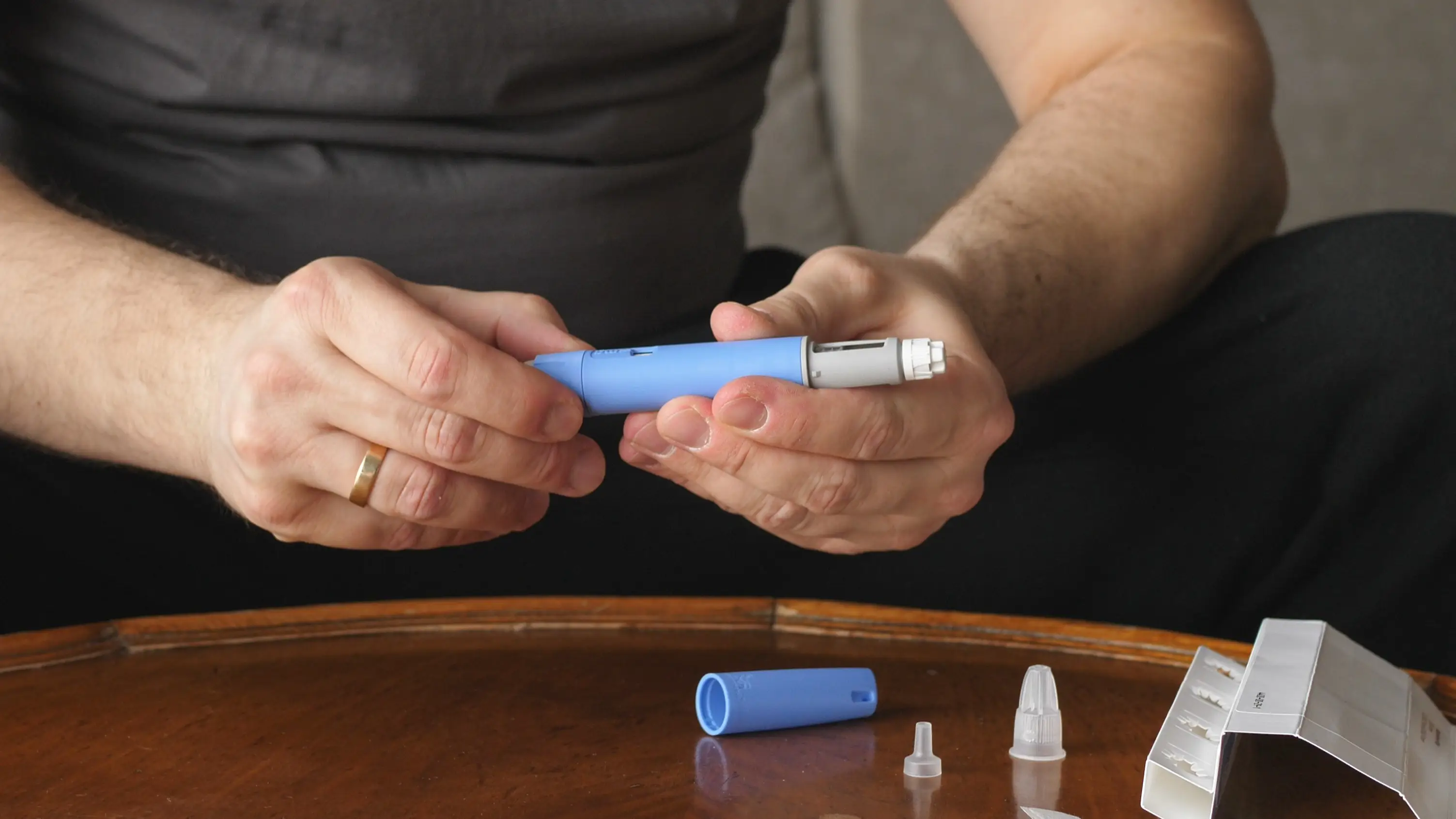
Ozempic could be used to treat addiction, as new research suggests the drug has a surprising side effect.
The medication Ozempic and its similar GLP-1 counterparts have rocketed in popularity in recent years, with some 15.5 million adults in the US, about six per cent of the population, turning to the drugs.
While Ozempic isn't marketed or officially approved as a weight loss drug, it is used primarily to treat Type 2 diabetes; however, many users have found it can aid in weight loss, too.
This is because GLP-1 medications regulate blood sugar levels and can make users feel satiated after eating. Of course, with any medication, there can be a few side effects, and a few users have made note of certain ones they’ve experienced.
Advert
However, new research is also emerging that the jab has some other unexpected and welcome side effects.

According to NPR, doctors and patients alike have noted the drug has appeared to reduce some people's cravings for booze, nicotine, and opioids. The outlet adds that they could also curb some types of compulsive behaviors, like gambling and online shopping.
One such patient to experience this surprising shift has been J. Paul Grayson.
The 73-year-old retiree from Oklahoma started taking Ozempic to help manage his weight, pre-diabetes and high blood pressure when he found his attitude towards alcohol had changed.
"I remember going to dinner for the first time [while taking Ozempic]," he told NPR. "I ordered a beer, took a sip, and I couldn't finish it. You know how sometimes you taste a beer, and it's like, 'Oh my God, this tastes so good that I want to guzzle it.' Well, I didn't feel like guzzling. I just really felt like sipping it."
"Before Ozempic, I could consume a whole bottle of wine in an evening without trying real hard, along with a bag of chocolates," Grayson continued. "But with Ozempic, even one beer didn't feel good to me somehow."
Yet for scientists, the revelation apparently isn't that surprising.

Pharmacologist Elisabet Jerlhag and her colleagues at the University of Gothenburg in Sweden have discovered that GLP-1 drugs have prevented alcohol relapses in 'addicted' rats and mice.
"So we see a reduction by over 50%, which is quite dramatic," Jerlhag commented.
Doctor Lorenzo Leggio, clinical director of the National Institute of Drug Abuse, explained further that it occurs because the drugs 'also work in your brain'.
"The mechanism in the brain that regulates overeating overlaps with those responsible for the development and maintenance of addiction, including alcohol disorder," he added.
Though much of the evidence has been largely anecdotal so far, Christian Hendershot, a psychologist and addiction researcher at the University of North Carolina, is leading a new clinical trial into the effects.
He said: "There's really been a large number of clinical and anecdotal reports coming in suggesting that people's drinking behaviors are changing and in some instances pretty substantially while taking [Ozempic or Wegovy.]

"All these reports, for the most part, are anecdotal. At the same time, it does seem like there's a pretty strong signal here."
Scientists are now hoping that the study could shed light on a new area of health, notably addiction treatment for people who struggle with substance abuse, alcohol and/or smoking.
According to the outlet, some doctors have even started suggesting the drugs for this specific reason.
A spokesperson for Novo Nordisk, which owns Wegovy and Ozempic, said in a statement to UNILAD: "Clinical trials for Wegovy® (semaglutide injection) did not specifically study the medicine’s impact on addictive disorders.
"Whilst there have been some studies carried out to look at the role of glucagonlike peptide-1 (GLP-1) in addictive disorders, Novo Nordisk is not currently conducting any dedicated clinical studies to evaluate marketed semaglutide products (Ozempic®, Rybelsus® and Wegovy®) in patients with substance use disorders or addiction-related illnesses.
"Clinical trials for Wegovy® (semaglutide injection) did not specifically study the medicine’s impact on addictive disorders."